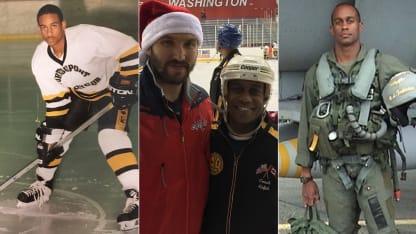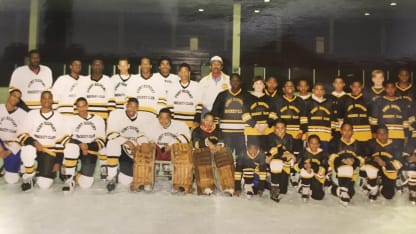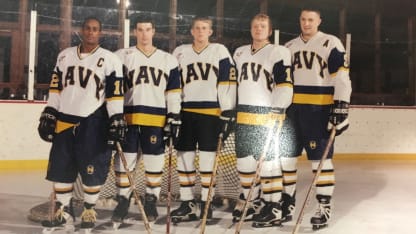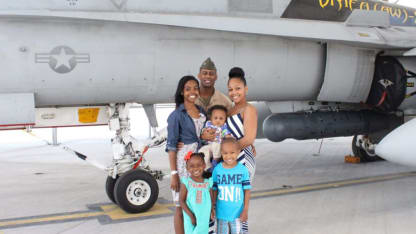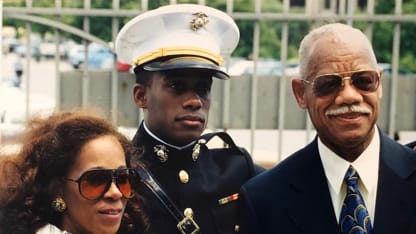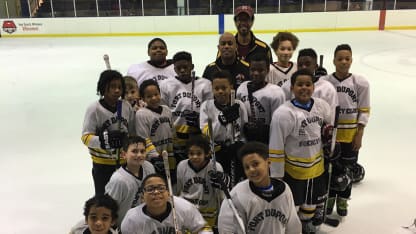"My dad's thing was, 'Hey, if that's going to bother you, maybe that's not the sport you want to play,'" Featherstone said. "Because if guys know that they can do that and upset you, then they'll use that against you. That's something that Coach [Henderson] preaches all the time."
\\*
Featherstone grew up rooting for the Capitals, attending games at the Capital Centre in Landover, Maryland, and continues to follow them. So it was special for him when they played against the Toronto Maple Leafs at the 2018 Coors Light NHL Stadium Series at Navy-Marine Corps Memorial Stadium on March 3.
Featherstone was honored between periods for his service in the Marine Corps and work with the Cannons with a video tribute on the end-zone scoreboard screens. Standing there watching it in his Marine Corps uniform, Featherstone fought to control his emotions.
"Every aspect of my life was there, and my family was there to see it too, and it tied them in," he said. "And the coaching piece, there were pictures of some of the kids that we coach here. So, it was like, wow, this has checked every box for me and it was just really awesome."
